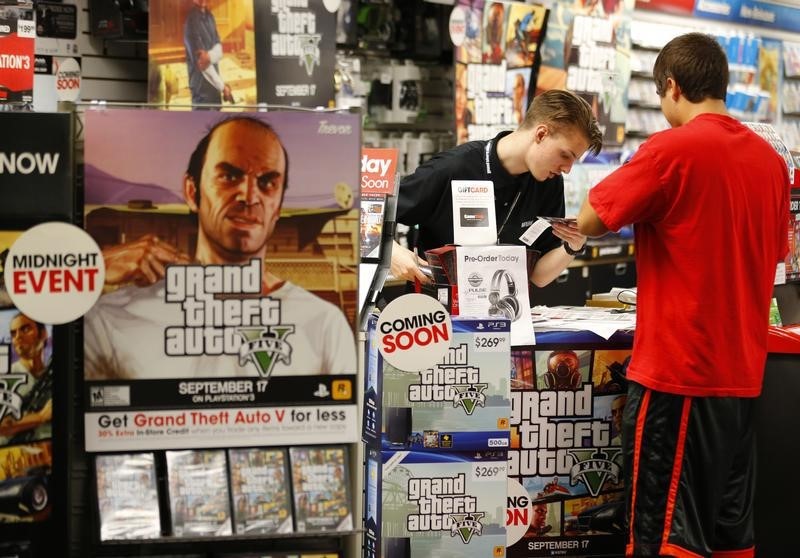This post was originally published on this site

Shares of Take-Two Interactive Software (NASDAQ:TTWO) are down about 17% in pre-market trading after the company reported weaker-than-expected bookings for its second fiscal quarter and slashed the full-year forecast.
Take-Two reported a loss per share of $1.54 on revenue of $1.39 billion, missing the average analyst estimate that called for a profit of $1.38 per share on sales of $1.56 billion. Net bookings were reported at $1.5 billion, missing the $1.55 billion consensus.
For this quarter, the adjusted EPS is seen between $0.79 and $0.89, a big miss compared to the average analyst estimate of $1.41. Net bookings are seen between $1.41 billion and $1.46 billion, again below the $1.69 billion consensus.
Weak FQ3 guidance prompted Take-Two to cut its full-year forecast for net bookings from $5.8 billion-$5.9 billion to $5.4 billion-$5.5 billion. Analysts were looking for $5.91 billion in full-year bookings. The adjusted FY EPS is seen between $3.85 and $4.10, down from the prior outlook of $4.60 and $4.85, and below the average analyst estimate of $4.81.
“Our reduced forecast reflects shifts in our pipeline, fluctuations in FX rates, and a more cautious view of the current macroeconomic backdrop, particularly in mobile,” the company stated.
Morgan Stanley analysts cut the price target to $150 per share from $190 after “mixed” results.
“We believe Zynga (NASDAQ:ZNGA) will likely remain an overhang until investors become confident that mobile gaming has bottomed. That said, we see the pipeline and longer term opportunity as intact,” they said in a client note.
Oppenheimer analysts took note of “one of the largest misses in recent years.”
“Overall, we believe results and outlook are heavily impacted by Apple (NASDAQ:AAPL) ATT, which pressured in-app purchase revenues. It is harder for ZNGA and most other mobile publishers to target high-paying users. However, Rollic and its in-app advertising revenues outperformed, up mid-teens Y/Y,” they said.


